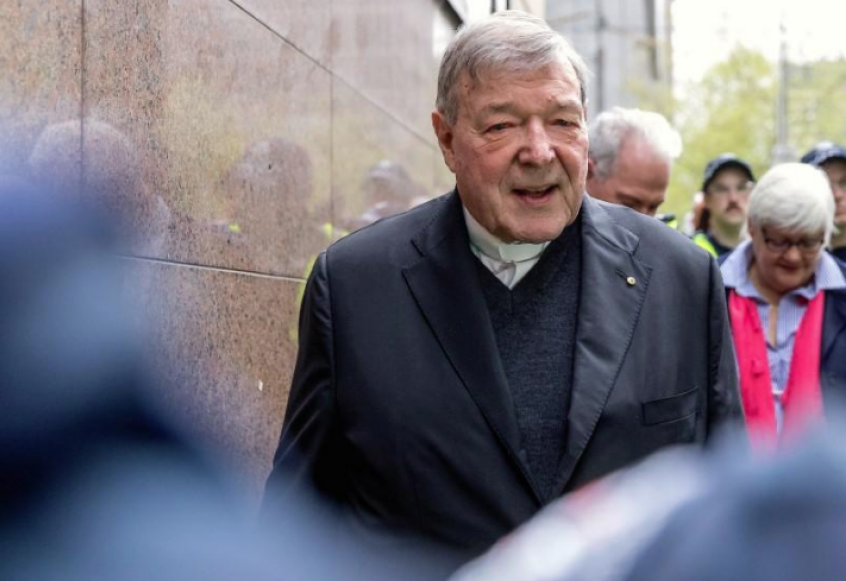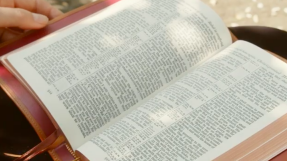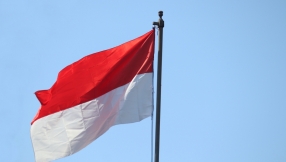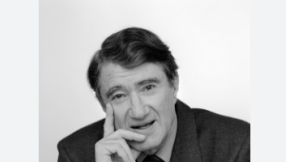Cardinal George Pell, Vatican treasurer, has been found guilty of sexual offences against children. He is the highest-ranking Catholic figure to have been convicted.
Cardinal Pell was charged in June 2017 and was given leave of absence from his work as the Vatican treasurer to defend himself in court.. The Holy See stressed at the time that the Secretariat for the Economy and the Vatican bank would continue to function as normal in Pell's absence.

Before leaving for Australia, Pell made a highly emotive, almost angry, public statement at the Vatican Press offices. He said that he had been subject to a 'relentless character assassination' that were the outcome of media leaks of an investigation two years previously. He even went so far as to say, 'I'm looking forward to finally having my day in court.'
The Holy See also commented at this time. It began by alluding to the 'charges filed in Australia against Cardinal George Pell for decades-old actions that have been attributed to him.' The Holy See was keen to seem to cooperate with the Australian justice system but also stated that 'it is important to recall that Cardinal Pell has openly and repeatedly condemned as immoral and intolerable the acts of abuse committed against minors.' It listed Pell'srecord in supporting the Pontifical Commission for the Protection of Minors and implementing systems and procedures to provide assistance to victims of abuse in his time as the Bishop of Melbourne.
In March 2018, Pell's supporters believed that the case was unravelling when some charges were dropped. Evidence was withdrawn from two accusers due to medical issues and death of a victim. At this time, Pell's barrister, Robert Richter QC, accused Magistrate Belinda Wallington of bias.
What became known as the 'cathedral trail' (cases leading back to the 1990s) began in August 2018 at the County Court of Victoria, Melbourne. Pell was charged with one act of sexual abuse and four indecent acts with two choirboys aged 13. The incidents are all said to have taken place at St Patrick's Cathedral Melbourne in 1996. Pell pleaded not guilty. Suppression orders were in place to prevent the Australian media reporting the verdict; however, leaks made it public within a matter of hours.
At the beginning of this month, hearings began before the start of the second trial. Again, one charge was dropped, leaving supporters hopeful. This second trial would have brought forth cases from the 1970s when Pell was a parish priest in Ballarat, but it was suddenly dropped. Justin Quill, a media lawyer and frequent analyst on both 9News Australia and Sky News has reported that 'Cardinal Pell went into a private room with Robert Richter, his lawyer, and come back out five minutes later'. Rather than apply for an immediate appeal, which was the assumed next move, Richter told the court that they were 'withdrawing their application for the suppression order' and that "effectively we could report the guilty finding'.
Since this guilty verdict was officially released, the Australian Catholic Bishops' Conference has released a statement, saying, 'The Bishops agree that everyone should be equal under the law, and we respect the Australian legal system.' They also said that they will 'pray for all those who have been abused and their loved ones'. Pell himself has said very little. A statement read on his behalf outside the court read, 'Cardinal George Pell has always maintained his innocence and continues to do so', and that he would await the outcome of his appeal before speaking.
The announcement of this verdict could not have come at a worse time for the Vatican, which has yet to make a statement as of Tuesday morning Rome time. Only yesterday it concluded an international meeting to discuss clerical sexual abuse: over 190 bishops and senior clergy had met in Rome for a seemingly urgent meeting to discuss the protection of minors in the Catholic Church.
Yesterday, Pope Francis ended this historic meeting with mass, in which he insisted that the church needed to protect children from 'ravenous wolves'. This closing speech was devoid of practical outcomes, which visibly outraged the victims that had been present during the meeting. The Catholic community globally had assumed when this meeting was called in September 2018 that there would be active and concrete policy change. The best that the media had as an outcome was from Rev Hans Zollner, president of the Centre for Child Protection at the Pontifical Gregorian University in Rome. He said that the church has addressed the 'systematic roots' of the scandal, but warned that it would take time to 'turn a big ship around'.
The Catholic church, already bruised by independent inquiries, accusations, and historical cases takes another step in the wrong direction today. Victims, their families, and Catholics in parishes around the world continue to see the pain and suffering of their brothers and sisters, but still no change. The divide between the pontificate and the people widens as the church globally wait for the Vatican's next move.
Nina Mattiello Azadeh studied music and philosophy and was a Faith in Politics media intern in 2016. She has a keen interest in interfaith relations, social action and is a classical ballet dancer. Follow her on Twitter @Ninamataz













